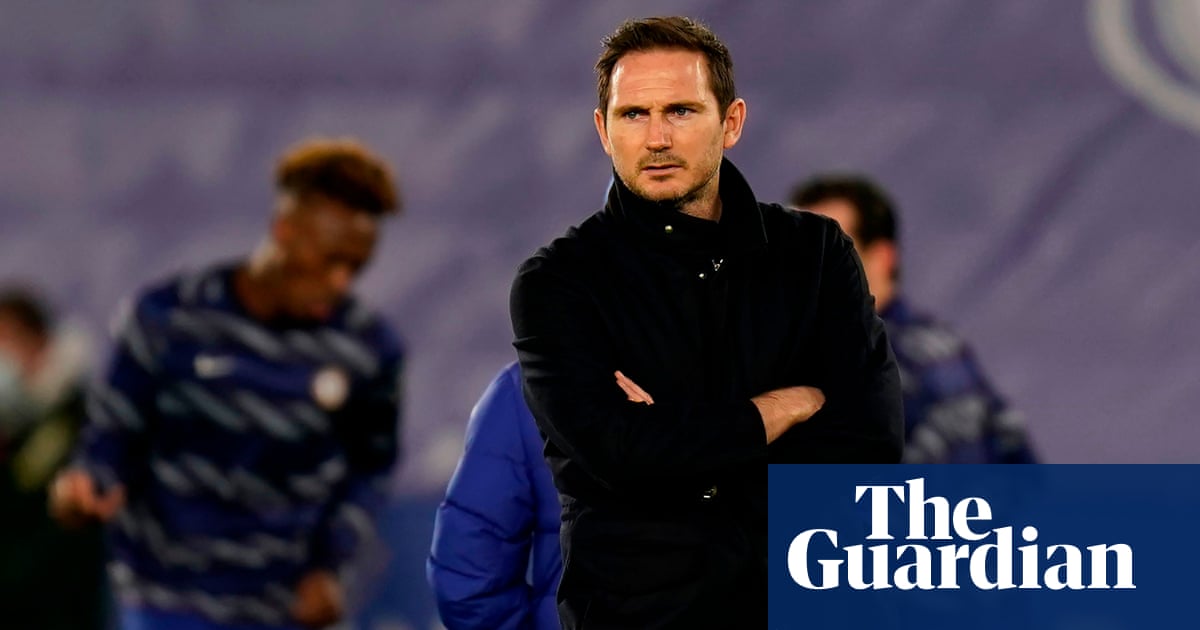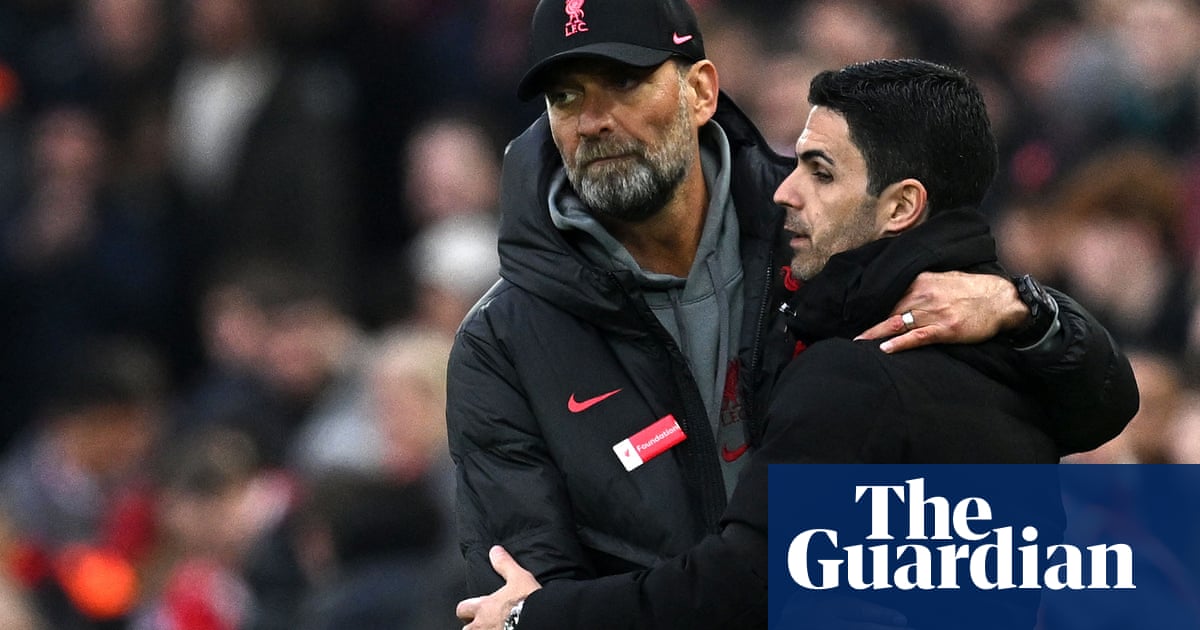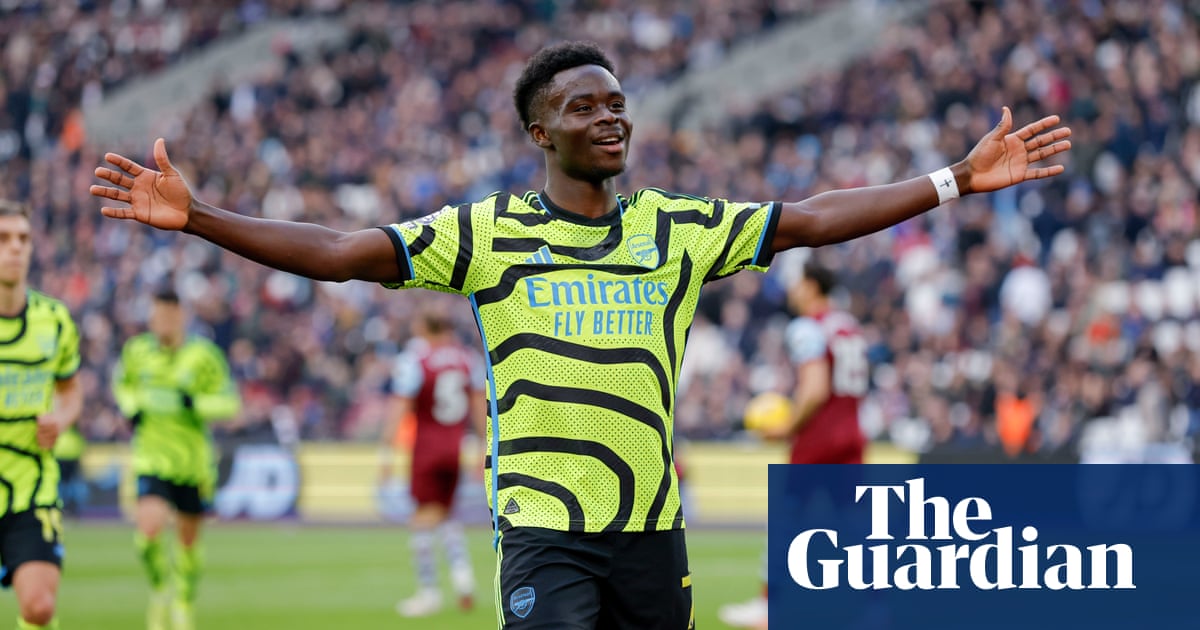
There were 76 minutes gone at Anfield as Mohamed Salah took a pass from Curtis Jones near the right touchline. Three blue shirts loomed close by. Salah was facing the crowd. Shortly before Manchester City had levelled the score at 1-1, and could claim, on the metrics, to have dominated the game to that point: more shots, passes, crosses and dribbles, albeit without seeming to have any preferred method of actually putting the ball in the Liverpool goal.
Through all of that there was a familiar sense of one player in red operating under a different gravity. Salah does this. Shane Warne famously damned Monty Panesar with the comment that he hadn’t played 33 Test Matches, but the same Test 33 times. The same could be said of Salah, who has effectively played the same game for Liverpool 212 times. Except happily, in Salah’s case, it is an astonishingly good game.
Sunday afternoon was already significant in other ways. This week marks the six-year anniversary of Jürgen Klopp’s appointment as Liverpool manager. There is an air of familial permanence about Klopp these days. By the turn of the year he will have outlasted every postwar Liverpool manager bar Bob Paisley and Bill Shankly, fitting company for a man who has performed a remarkable twin feat of modernising the present while still tending to the past.
Success, wider attachments, the Covid experience have all created an indissoluble bond. Klopp seems less angsty on his clothesline these days, more weathered, more thickly-bearded, and an agreeably nautical presence in his overalls, steering that seasoned title-winning crew on instinct and ship’s biscuits.
Way out on the far side from his manager during that passage on Sunday, Salah’s first act was to bounce away from João Cancelo, who came sniping in to steal the ball early, perhaps already thinking about counterattack. This is an overlooked Salah strength: his strength. Dribblers have to be brave in the Premier League, ready to be bumped and hacked down. Salah is 5ft 9in. He went through last season without being booked but doesn’t often lose these collisions.
The contact helped him. Salah was turned now and facing the City goal. At which point he did something wild, rolling his foot over the ball then skipping past Bernardo Silva, one of those moments of rare physical creativity that can seem so carefree in these condensed professional spaces.
There were still four blue shirts between Salah and the City goal, but he was moving now. In the stands the air had begun to crackle with the sense of something about to happen, like the static before a lightning strike.
Salah will be 30 next summer. He has two years left on his Liverpool contract, which is currently under review. He has nine goals and three assists this season. He has 135 goals and 43 assists in 212 Liverpool appearances. He has two Premier League golden boots and the best goals per game ratio of any postwar Liverpool player. He always plays and he nearly always scores.
Salah’s representatives are said to be asking for wage parity with City’s star midfielders. Kevin De Bruyne earns £380,000 a week, Jack Grealish £300,000. Salah, the razor edge in a title winning team, is on a mere £200,000. Liverpool’s top earner, Virgil van Dijk is at £220,000.
The sums may be ludicrous in isolation. But talent has a market. And sportspeople, even mild, likable inside forwards who pant about the pitch like a thirsty spaniel, are insanely driven people.
Liverpool have a choice to make. Either confirm the authority of the business plan, the rigidity of the wage structure. Or keep Salah at the club and take the hit. Lurking over this is the spectre of wage acceleration, of the collapse of Barcelona, the question of Salah’s age and presumed decline over the next few years.
But there are other kinds of logic too. Salah is, lest we forget, a phenomenon and an outlier. More than any other on-field part, he is the basic magic dust in those six years of Klopp. This is in many ways a co-era: the age of Salah.
It is hard to think of other players who have had such an obviously transformative effect. Alex Ferguson had Eric Cantona. Yaya Touré’s arrival shifted City from a hopeful project into a culture of relentless success. Salah’s first season was Klopp’s third at Anfield. Liverpool had improved from eight to fourth in that time. At which point: ignition.
In Salah’s first year they scored 135 goals and reached the Champions League final. In his second Liverpool hoovered up 97 points and were champions of Europe. In his third they won the league. In his fourth they collapsed in mid-season. No matter. Salah still scored 31 goals. They ended up safe in third. There has been an urge in the last few days to suggest Salah has been underappreciated through all this, to inject a little tribal grievance into his brilliance. There is no need. Those who watch know how good he is.
That sense of display, of something celebratory in his basic presence was there as Salah entered the City area, feet battering the turf, crowd already rising to its feet. Aymeric Laporte went to, “show” Salah on to his right side, angling his body that way. Salah feinted left, then took the route offered, springing off his standing foot and leaving Laporte pirouetting unhappily, like a man being spun around in his office swivel chair.
Salah had taken four City defenders out of the game in the space of five seconds, nine touches and 20 yards Anfield grass. Suddenly Ederson was the only remaining obstacle as he approached the angle of the six-yard box the ball falling into his stride as took two quick balancing steps.
What do you do with this kind of talent, with the feelings it generates? How do you quantify it?
Klopp’s scouts had nagged him endlessly about Salah before Liverpool signed him. But even in those first few months at Anfield Salah’s extra levels came as a surprise. That initial scoring run was treated as a bonus, something that must, naturally, come to an end. It hasn’t. It’s still going on.
The shot was hit with such power it simply flew past Ederson, even at grabbable height. Salah had just surged past four players at the tail end of the game, but he still had the flex and twang and torque to hit the ball with unstoppable force on his weaker foot.
Liverpool’s contract model has built into it the assumption that footballers will tail off past the age of 30, that you risk being left with a high earner in decline. Why should this rule apply to Salah?
He is in fearsomely good shape. He lives an exemplary athlete’s life. Footballers generally are remaining in peak condition for longer. Salah’s acceleration is a fine weapon, but his finishing, his technical levels, his shooting, his eye for space are also thrillingly high grade.
For now Salah remains so productive – home, away, league, cup, whatever – you wonder if he might create a referred problem. This Liverpool team is also defined by sweating the asset, by polishing the cracks and letting parts of the squad grow thin. For four years Salah’s goals, his basic relentlessness have made these plans work, keeping the ship on course even when you’ve sailed close to the wind.
This is still is a team in a state of fine balance. Net transfer spend is close to zero since the splurge three years ago. But Liverpool haven’t lost since Real Madrid away at the start of April. They have four trophies to play for. This well-seasoned crew can chase that glory without pressure or fear as we enter year seven of the age of Klopp.
Salah remains the catalyst. If Liverpool’s owners have any sense of this game, of its delicate energies, they will do everything they can to keep a player whose presence has defined not just an era of success, the lifting of a cloud, and a returning happiness; but also the wondrous returns on their own financial investment.












